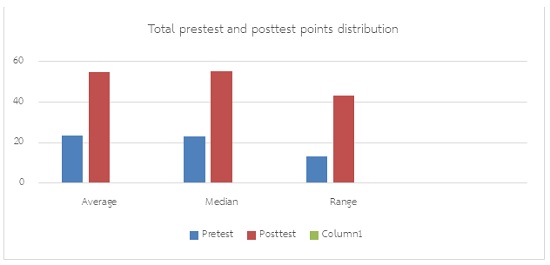EFFECTS OF GAME-BASED LEARNING ON 3RD GRADERS’ VOCABULARY ACHIEVEMENT
DOI:
https://doi.org/10.14456/nrru-rdi.2022.69Keywords:
Game-based learning, English vocabulary achievement, Traditional approach, Learners’ motivationAbstract
Students’ abilities to communicate, read and write effectively are vital for success; it depends on how well students acquire and retain new vocabulary developed through vocabulary enrichment lessons and activities. In Thailand, English as foreign language learners (EFLs) struggle with vocabulary deficit challenges. Since games have been an inevitable part of education, they have indescribably transformed educational outcomes with a higher emphasis on learner-centric pedagogy. Thus, computer games are considered effective alternative instruments that promote students’ engagement and fun learning processes. This tended to show an improvement in the attainment of learning objectives compared to students using standard instructional methods. Hence, using the game-based learning (GBL) method, this study employs a quantitative research approach and elements such as pretest and posttest, survey questionnaires, and four lesson plans, which were approved by the experts, including assessments of English vocabulary items related to four themes extracted from the English curriculum and student’s English textbooks, and designed according to the unit lesson plan within eight weeks and a total of twelve hours for students to examine the effect of GBL on vocabulary achievements. There were 90 participants in this quantitative research. The learning satisfaction survey after being taught by using games. The data were analyzed for the mean, standard deviation, and t-test dependent. Using GBL from across the four vocabulary themes revealed that GBL is effective in improving 3rd graders’ English vocabulary achievement. It also provided a fascinating account of several games that are popularly used to facilitate effective learning in various settings.
References
Abdul R. N. S., & Talib, Z. (2017). The Effects of Digital Game-Based Learning on Primary School Students’ English Vocabulary Achievement and Acceptance. Innovative Teaching and Learning Journal, 1, 61-74.
Becker, K. (2016). Choosing and using digital games in the classroom: A practical guide. Cham : Springer International.
Kathinthong, C., & Adipat, S. (2022). The Development of Vocabulary Learning Using Game Based Learning for Grade 13 Students. Journal of Modern Learning Development, 7(4), 320-332. Retrieved June 1, 2022, from https://so06.tcithaijo.org/index.php/jomld/article/view/254859/172765 (In Thai)
Khan, R. M. I., Radzuan, N. R. M., Shahbaz, M., Ibrahim, A. H, & Mustafa, G. (2018). The Role of Vocabulary Knowledge in Speaking Development of Saudi EFL Learners. DOI: https://dx.doi.org/10.24093/awej/vol9no1.28
Minor, C. E., Desimone, L., Caines Lee, J., & Hochberg, E. D. (2016). Insights on how to shape teacher learning policy: The role of teacher content knowledge in explaining differential effects of professional development. Education Policy Analysis Archives, 24, 61. https://doi.org/10.14507/epaa.24.2365
Noom-ura, S. (2013). English-Teaching Problems in Thailand and Thai Teachers’ Professional Development Needs. PathumThani : Thammasat University press. (In Thai)
Papadakis, S. (2018). The use of computer games in a classroom environment. International Journal of Teaching and Case Studies, 9(1). 10.1504/IJTCS.2018.10011113 (In Thai)
Puttimanoradeekul, P., & Phongsatha, S. (2019) Implementing English Game-Based Learning Applications in Classrooms to improve Primary School Students’ English Vocabulary Skills. Academic Journal Rajabhat Phranakhon University, 10(1), 143-161. (In Thai)
Reem, A., & James, M. (2020). Investigating the Relationship between Vocabulary Knowledge and Academic Success of Arabic Undergraduate Learners in Swansea University. Language in Focus, 2, 88-124.
Rodkroh, P., Suwannatthachote, P., & Kaemkate, W. (2019). Effects of Using Problem-Based Learning Digital Game on Problem-Solving ability for Science subject of Primary Students. Veridian E-Journal, Silpakorn University (Humanities, Social Sciences and arts), 12(5), 762-777. (In Thai)
Rovinelli, R. J., & Hambleton, R. K. (1976). On the use of content specialists in the assessment of criterion-referenced test item validity. Paper presented at the annual meeting of the American Educational Research Association : California (April 19-23, 1976). Retrieved June 16, 2021, from https://files.eric.ed.gov/fultlext/ED121845.pdf
Taghizadeh, M., Vaezi, S., & Ravan, M. (2017). Digital Games, Songs and Flashcards and their Effects on Vocabulary Knowledge of Iranian Preschoolers. Studies, 5(4), 156-171.
Vodenicharova, M. (2022) Gamed-based Learning in Higher Education. TEM Journal, 11(2), 779-790. DOI: 10.18421/TEM112-35

Downloads
Published
How to Cite
Issue
Section
License

This work is licensed under a Creative Commons Attribution-NonCommercial-NoDerivatives 4.0 International License.




